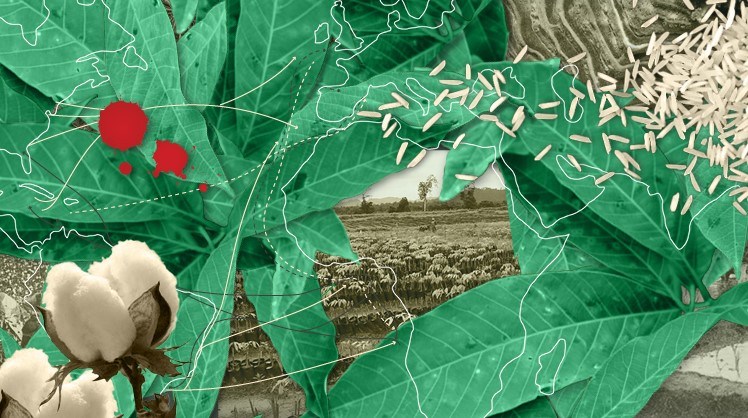McKenzie Wark: Capital Is Dead: Is This Something Worse? (2019)
Filed under book | Tags: · capitalism, data, information, labour, marxism, nature, neoliberalism, production, theory

“It’s not capitalism, it’s not neoliberalism—what if it’s something worse?
In this radical and visionary new book, McKenzie Wark argues that information has empowered a new kind of ruling class. Through the ownership and control of information, this emergent class dominates not only labour but capital as traditionally understood as well. And it’s not just tech companies like Amazon and Google. Even Walmart and Nike can now dominate the entire production chain through the ownership of not much more than brands, patents, copyrights, and logistical systems.
While techno-utopian apologists still celebrate these innovations as an improvement on capitalism, for workers—and the planet—it’s worse. The new ruling class uses the powers of information to route around any obstacle labor and social movements put up. So how do we find a way out? Capital Is Dead offers not only the theoretical tools to analyze this new world, but ways to change it. Drawing on the writings of a surprising range of classic and contemporary theorists, Wark offers an illuminating overview of the contemporary condition and the emerging class forces that control—and contest—it.”
Publisher Verso, London, 2019
ISBN 9781788735308, 1788735307
202 pages
Book launch (with Natasha Lennard, video, 90 min).
Interviews with author: Verso Books (video, 2019, 16 min), Red May TV (with Alexander Zevin, Jasper Bernes and Wendy Liu, video, 2020, 110 min), Guy Mannes-Abbot (Tank, 2019).
Reviews: Garrett Pierman (Marx & Philosophy, 2020), Ben Tripp (Hyperallergic, 2020), Madeleine Collier (Afterimage, 2020), Colin Drumm (Cosmonaut, 2019), Mark Steven (Sydney Review of Books, 2020), Steve Hanson (Manchester Review of Books, 2020), Antonio Navarro (Teknokultura, 2020, ES).
HTML
PDF (9 MB, added on 2019-11-22)
The Plantationocene Series: Plantation Worlds, Past and Present (2019)
Filed under book | Tags: · anthropocene, capitalism, environment, land, plantation, plantationocene, plants, politics

“The Plantationocene is an alternate name for the epoch often called the Anthropocene. Inspired by the scholars and artists visiting University of Wisconsin–Madison as part of the 2019-2020 Plantationocene Sawyer Seminar, this series aims to create a conversation about multiple forms of plantations, both past and present, their materialities, the economic, ecological, and political transformations they wrought, and their significance to the making of human bodies, capitalism, and land over the course of four centuries.”
Contributors: Sophie Sapp Moore, Monique Allewaert, Pablo F. Gómez and Gregg Mitman; Deborah A. Thomas; Raina Martens and Bii Robertson; Leanne Day and Rebecca Hogue; Kwynn Johnson; Donna Haraway and Anna Tsing, a.o.
Edge Effects dossier
Publisher Center for Culture, History, and Environment (CHE), Nelson Institute for Environmental Studies at the University of Wisconsin-Madison, 2019
Creative Commons BY-NC-ND 4.0 International License
Neda Atanasoski, Kalindi Vora: Surrogate Humanity: Race, Robots, and the Politics of Technological Futures (2019)
Filed under book | Tags: · artificial intelligence, automation, capitalism, colonialism, ethics, feminism, labour, liberalism, machine, military, race, robotics, robots, technology, women, work

“In Surrogate Humanity Neda Atanasoski and Kalindi Vora trace the ways in which robots, artificial intelligence, and other technologies serve as surrogates for human workers within a labor system entrenched in racial capitalism and patriarchy. Analyzing myriad technologies, from sex robots and military drones to sharing-economy platforms, Atanasoski and Vora show how liberal structures of antiblackness, settler colonialism, and patriarchy are fundamental to human—machine interactions, as well as the very definition of the human. While these new technologies and engineering projects promise a revolutionary new future, they replicate and reinforce racialized and gendered ideas about devalued work, exploitation, dispossession, and capitalist accumulation. Yet, even as engineers design robots to be more perfect versions of the human—more rational killers, more efficient workers, and tireless companions—the potential exists to develop alternative modes of engineering and technological development in ways that refuse the racial and colonial logics that maintain social hierarchies and inequality.”
Publisher Duke University Press, Durham, NC, March 2019
Perverse Modernities series
ISBN 9781478003861, 1478003863
x+240 pages
Interview with authors: Lesia Pagulich, Tatsiana Shchurko (Feminist Critique, 2019).
Reviews:Sibille Merz (Ethnic & Racial Studies, 2019), Barbara Herr Harthorn (American Ethnologist, 2020), Anita Lam (Surveillance & Society, 2020), Andrea Flores (Information & Culture, 2020), Raquel Bosó Pérez (Sociology of Health & Illness, 2020), Nina Trige Andersen (Modern Times, c.2020), Kevin Pabst (Security Journal, 2020).
Comment (0)
